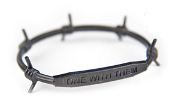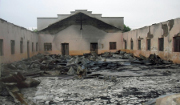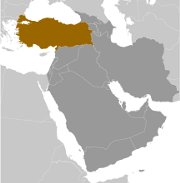Church leaders call for dialogue to defend against accusations of unethical evangelism.
By Vishal Arora
THIMPHU, Bhutan, September 9 (Compass Direct News) – Christians in this Buddhist nation have been awaiting a decision on whether they will receive official recognition, but it appears they will first see a measure against fraudulent conversion that the prime minister acknowledges is essentially designed to deter evangelism.
In this tiny country tucked between China and India in the Himalayan Mountains, Bhutan’s parliament is considering an amendment to the penal code that seeks to penalize conversion by coercion or inducement. Under proposed Section 463 of the Penal Code, “a defendant shall be guilty of the offense of proselytization if the defendant uses coercion or other forms of inducement to cause the conversion of a person from one religion or faith to another,” according to the government-run Kuensel newspaper.
Prime Minister Jigmi Yoser Thinley told Compass the proposed clause in the penal code was “essentially… to deter conversion,” saying there was no reason why Christians should seek to induce others to join their faith.
“There are a few Christians and followers of other faiths as well [in Bhutan], and there is no difficulty with that,” Thinley said. “That is good… we promote diversity of cultures. But then, when there are those who try to convert others without understanding the values, the principles, and the essence of the other religion, we have here what constitutes the worst form of discrimination.”
In an exclusive interview in his office, Thinley said Christians seek to convert other Bhutanese citizens with the power of money and an attitude of spiritual superiority, accusations that Christian leaders in the country denied.
Thinley said “inducing a poor person” by “manipulating the social and economic disadvantages and circumstances of that person, to accept your religion, on the ground that it is superior to mine,” divides society.
“And I have seen families being divided in the country,” he said. “I have seen communities being divided.”
The government of Bhutan commands an unusually high level of respect from its people. Christians, estimated to be between 6,000 and 15,000, equally admire the country’s leaders, who in recent months appeared willing to grant them legal recognition but remain indecisive.
Christian leaders said they were distressed with the government’s notion of Christians and Christianity, which they said was “far from true.”
“No evidence of such allegations has come to our knowledge, but still we will never try to defend anyone who indulges in unethical conversions,” said a Christian leader from Thimphu on condition of anonymity. “There might be some who are doing this, and the authorities must deal with them strictly for breaking the law of the country.”
Several other pastors and leaders sitting with him nodded in agreement.
The prime minister, who has headed Bhutan’s first fully democratic government since 2008, said Christianity can be beneficial to society.
“Having read most of the books [of the Bible], having attended church in my young days every Sunday, and then again every weekday when I was in school except for Saturday, I know that it is a good moral and ethical framework for the functioning of a good society,” he said. “But just as I would not encourage and not think well of a Buddhist trying to convert a Christian, I think I feel the same way [about a Christian trying to convert a Buddhist].”
Thinley stressed that religion was “all about ethics and morality,” but that when it is spread through immoral and unethical acts, “it’s a crime against humanity.”
“When a dying patient is being whispered into the ear, [to the effect that ] the only way to survive is to disown your religion and to accept this new faith, and when this whisper is being done by a doctor or by an attending nurse, I think it is the greatest sin one can commit,” he said. “When a poor parent is being told that, ‘Look, your child cannot go to school; you change your faith and we will provide you the possibility to ensure that your child can attend school,’ that is corruption. And when a poor family is being told that, ‘Why don’t you embrace our faith because then you don’t have to bear any cost for the burial of this person who is about to die in your family – it will be free,’ that’s corruption; that’s bribery.”
Some Buddhist sects in Bhutan expect their adherents to have elaborate, expensive funeral rituals.
Christians said officials were wrong to view them negatively and called for dialogue with the government. Compass learned that there has been no formal interaction between the government and Christians leaders apart from some individual pastors occasionally meeting an official.
Several stories have appeared in Bhutan’s newspapers claiming that converts were being paid money by other Christians from Western countries. Compass met many journalists who sincerely believed that foreign Christian groups were offering money for converts.
“Perhaps this is what has created such mistrust between us and our government,” said the Christian leader. “We hope the government would give us a chance to defend ourselves. We are more than willing to address the government’s concerns.”
He added that journalists should speak to pastors and other church leaders to verify stories about inducements to convert.
“We will extend full cooperation, as we do not believe in using coercion or inducement to convert others – it is against our Christian tenets,” he said, adding, “We do not fear the penal code amendment.”
Bhutan Minister for Home and Culture Minjur Dorji told Compass that the passing and implementation of the penal code amendment “may take some more time, due to procedures involved.” Asked if some could misuse the law to make false allegations and thereby create religious disharmony, as in Indian states with similar anti-conversion legislation, Dorji promised he would not allow that to happen.
Official Recognition
Dorji said his department had yet to decide whether Christians could be recognized officially.
“There is no legal provision for that,” he said. “It’s not in the constitution, and not in the Religious Organizations Act.”
The Religious Organizations Act states that one of its main objectives is to “facilitate the establishment of ROs [Religious Organizations] in order to benefit the religious institutions and protect the spiritual heritage of Bhutan [which is Buddhism, according to the constitution].” Only Buddhist and Hindu organizations have been registered by the country’s authority regulating religious organizations, known as the Chhoedey Lhentshog.
Roughly 75 percent of Bhutan’s population of 708,484 is Buddhist, and Hindus, mainly ethnic Nepalese, account for around 22 percent, according to Operation World.
The constitution of Bhutan allows religious freedom. Article 7(4) states, “A Bhutanese citizen shall have the right to freedom of thought, conscience and religion,” and Article 3(2) says, “The Druk Gyalpo [King of Bhutan] is the protector of all religions in Bhutan.” Christians say they are thankful to their political leaders and the country’s highly revered king, Jigme Khesar Namgyel Wangchuck, for granting religious freedom to all communities. But no church or Christian organization is a legal entity yet.
“The church in Bhutan is not underground any longer; we meet regularly on Sundays without any interference by the authorities,” said the Christian source. “But we are not allowed to function as an organization with a legally recognized status.”
Until Christian groups are legally recognized, their rights will remain ambiguous, he added.
“Legal status is also imperative for us to be able to actively engage in nation-building,” said another Christian leader. “We love our country as much as other Bhutanese do. And we are equally proud of our nation’s distinct culture.”
One of the world’s most isolated countries until recent years, Bhutan began to open up to the outside world in the 1970s. Former King Jigme Singye Wangchuck envisioned democracy in the country in 2006, after the rule of an absolute monarchy for over a century.
END
*** A photo of Prime Minister Jigmi Yoser Thinley is attached for subscribers, to be used with credit to Compass Direct News. A high-resolution photo is also available; contact Compass for transmittal.
**********
Copyright 2011 Compass Direct News












